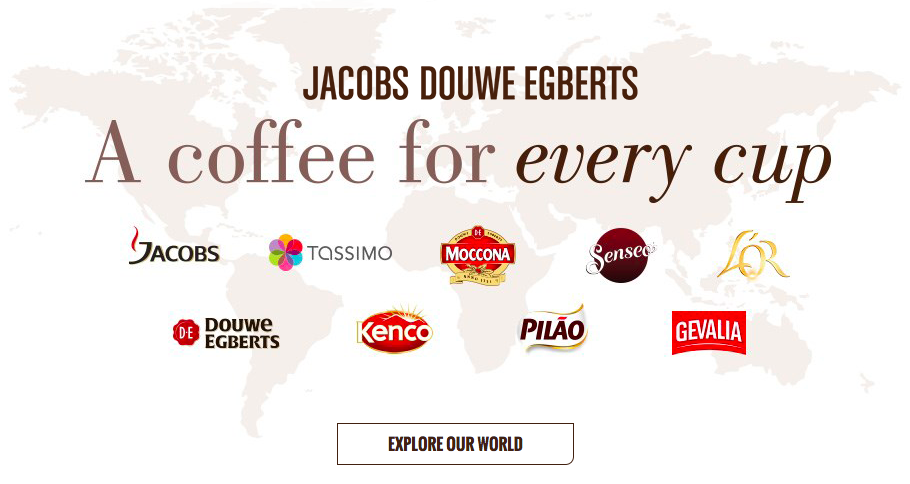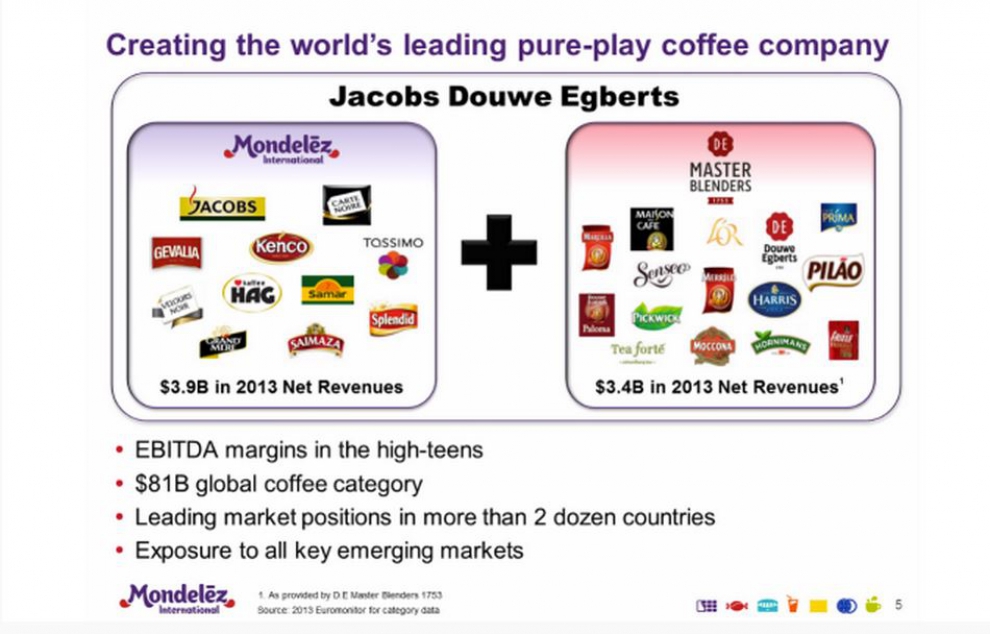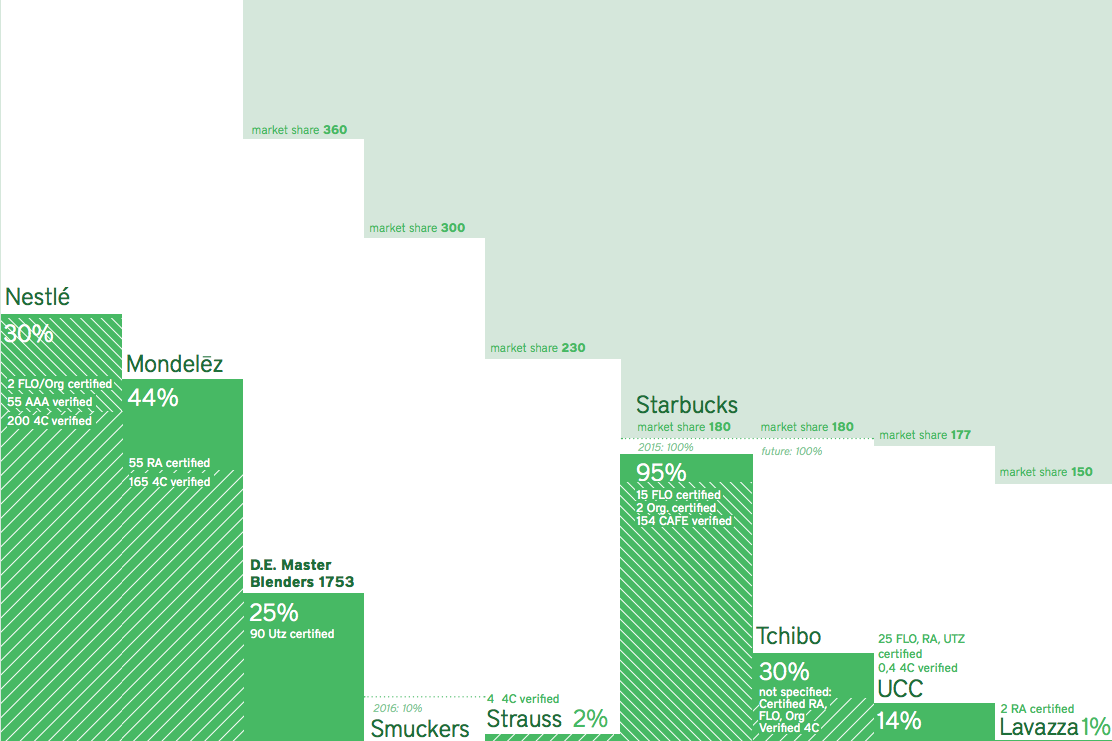The coffee supply chain is famously shaped like an hourglass (or, if you will, a drip coffee machine): the broad demand at the top is connected to the millions of small producers at the bottom by a handful of powerful roasters. In 2013, the ten largest roasters controlled more than 40% of total world coffee sales. Now, concentration has gotten even more intense, as the European Commission has approved the merger of the second- and third-largest companies, D.E. Master Blenders and Mondelez, to create the new Jacobs Douwe Egberts joint venture.
The deal was initially announced in 2014, but was halted by anti-trust concerns of the Europeans. The reason for this is simple: the two companies hold leadership positions in many European consumer markets, as the next list (courtesy of Market Realist) shows.

This worried the EC:
“The Commission has concerns that the proposed transaction may reduce competition for various coffee formats in Austria, France, Denmark and Latvia and for single-serve systems in multiple member states. […] This concentration of key local brands in the hands of one company increases the likelihood of price increases for retailers and ultimately for consumers.”
Yet, after scrutiny by European authorities, the deal was allowed to proceed with only minor adjustments (selling off/divesting certain brands in certain countries). This left me scratching my head – I guess that the Commission decided that the threat of price increases for consumers was not important enough to warrant stronger intervention? According to Jacobs Douwe Egberts, even after complying with the conditions, they still are the # 1 or 2 roaster in 18 (18!) countries worldwide. They are also much closer to their main market rival Nestle, establishing an oligopoly with two players controlling almost half of world coffee sales. What gives?
Sidenote: One funny aspect are the different lenses to view one and the same reality: the same fact that worries anti-trust legislators to the point of intervention – the concentration of many brands in the hands of one company – is worn as a badge of major pride by the companies themselves.
We shall see what this development heralds for consumer prices. Yet, what has been much less discussed in media is the impact on the other broad base: the producers. We often forget that roasters hold an intermediate position in the supply chain and are thus both sellers and buyers – in this case, oligopolists and oligopsonists.
This merger, just as on the consumer side, means they also have stronger and stronger power to dictate prices in the green coffee market. Granted, many coffee contracts are traded on the commodity (stock) market with forward contracts, and many more aspects play a role on price formation (notably, weather conditions in main producer countries such as Brazil). Still, it is naive to assume that such contract formation does not also depend on the number of players in the market. Notably, economies of scale in mixing and matching coffees from different origins may further erase differences in regional prices, forcing producers to lower their price to that of the lowest bidder – the country with the laxest labor laws and cheapest input prices.
However, this development could also be an opportunity in the making. If Nestle and Jacobs Douwe Egberts were to jointly commit to paying fairer prices for their coffee, they could affect the livelihoods of millions of smallholders without fearing to be undercut and outcompeted by market rivals because they have so much market power already.
Unfortunately, visiting Jacobs Douwe Egberts “Sustainability” page is not very informative – there is no mention of sustainable procurement goals, and only very general references to certification schemes and other initiatives.
Their track record is mixed: D.E. Master Blenders did procure 25% of their supply through UTZ Certified in 2012/13, while Mondelez purchased some Rainforest Alliance certified coffee, but focused most of its sustainable procurement on 4C-verified deliveries (whose standards are significantly lower). I wonder how they will align their strategies…
In any case, I always feel that such takeovers and consolidations are relegated to the business section of the news cycle, as if consumers, producers and citizens were not directly affected by such unilateral decisions (sidenote – interesting article on the 4 siblings behind the billion-dollar D.E. brand). It’s incredible that such power lies in so few hands – but maybe these few heads are all it takes to convince to bring about a market revolution?




